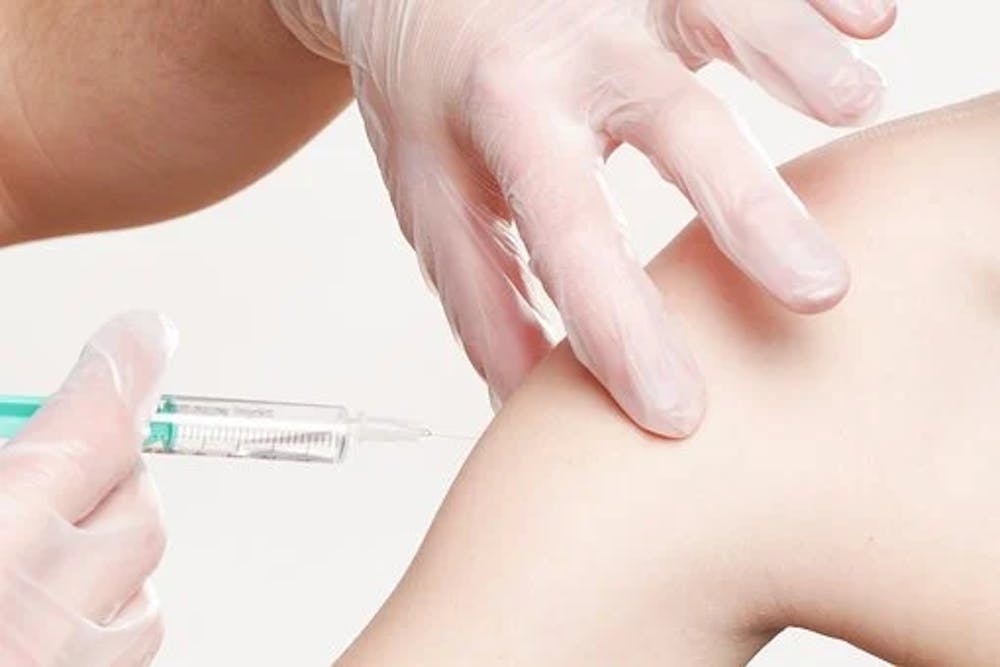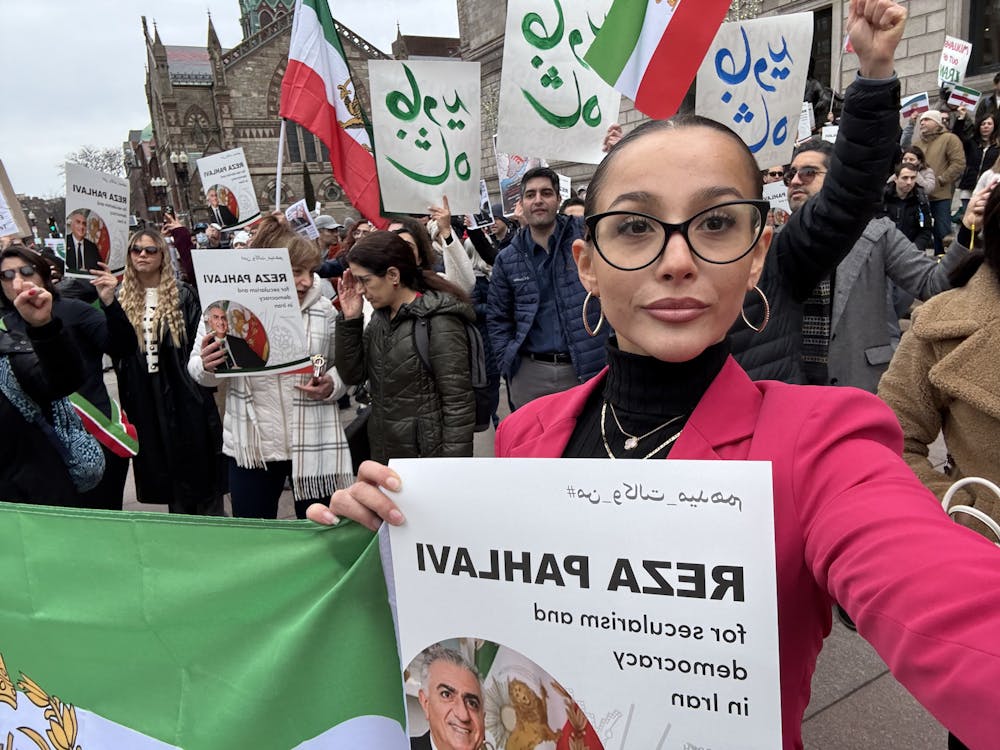This article is part of our series Opposing Viewpoints, where students with diverse perspectives answer pertinent questions in conversation with each other. You can find the opposing piece for this article here.
With final exams, holidays and celebration right around the corner, something that unavoidably looms over all of us is COVID-19. Is it safe to travel and share meals? What will spring semester look like? Fortunately, recent news has been dominated by breakthroughs related to a vaccine for the virus.
Two types of vaccines show promise. The mRNA vaccines are less likely to provoke adverse reactions, but they may be hard to deliver to tropical regions due to the requirement of storage at incredibly low temperatures. The other type of vaccine consists of the inactivated virus, like Russia’s Sputnik V, China’s Sinovac and China National Biotec Group vaccines. They do not require subzero storage but are slightly more likely to cause minor side effects in some patients.
This week, the U.K. became the first country to authorize a COVID-19 vaccine for clinical use. Yesterday the first American health-care workers received the newly-approved Pfizer-BioNTech vaccine for COVID-19. Moderna has also applied for emergency approval of its COVID-19 vaccine from the Food and Drug Administration (FDA), which was shown to be 94% effective in a report from Nov. 30. These developments provide hope in light of the grim reality that the U.S. just surpassed 16 million confirmed cases of COVID-19.
Earlier this semester, Hopkins mandated flu shots for anyone spending time on a Hopkins campus, including contractors and vendors working on Hopkins property temporarily. Though news stories like the announcement from three former U.S. presidents that they will film themselves getting vaccinated seek to inspire enthusiasm, many uncertainties remain. I generally stand with vaccines and choose science over skepticism; however, I don’t think it is a good idea to require the COVID-19 vaccine for all members of the Hopkins community. It would be far more effective to provide comprehensive education on the risks and benefits of vaccination so individuals receive a vaccine willingly and enthusiastically.
The main reason is that we will not be able to conclusively guarantee the long-term safety and efficacy of the vaccine. Uncertainty regarding the virus, vaccine and the pandemic still persists, and studies have been limited due to ethics and time constraints. Anomalous data in vaccine trials at Oxford University, where an unintended lower dosage by error resulted in greater percent efficacy, puzzled the scientific community. Additionally, we don’t know yet whether the vaccine prevents you from spreading COVID-19 to others. Much more data needs to be collected before such a broad mandate would be reasonable and responsible.
The World Health Organization recommends against requiring the COVID-19 vaccine, and President-elect Joe Biden has explained that he will not make the vaccine mandatory for Americans. These decisions are rooted in concerns over the likelihood of widespread public objection — not unlike the anti-mask opposition we’ve seen — that could have a counterproductive effect on public health.
The trial which FDA approval was based on included relatively small proportions of some high-risk populations, such as those with serious underlying medical conditions and minority ethnic groups. As an international student from China, I am worried that Moderna or Pfizer vaccines may not have covered my physiological type in their clinical trials. According to the FDA briefing report for Pfizer’s vaccine, only 4.4% of the subjects were reported to be of any Asian descent.
Among trial participants, side effects ranged from mild symptoms like sore arm or fatigue to more severe ones, like localized pain and low-grade fever with chills. Additionally, Pfizer vaccines should not be given to individuals with a history of severe allergic reactions after two health workers with a history of severe allergic reactions ”responded adversely” to the vaccine after its mass rollout in the United Kingdom. This incident is also alarming because it points to a potential downside of health-care workers receiving the vaccine first. If many of these front line employees experience adverse effects, it could deplete our already low supply of health-care workers when we need them most.
Due to the uncertainty of efficacy and potential for adverse reactions, it is highly unlikely that U.S. employers and private companies would mandate vaccination for their employees to avoid backlash if the mandate proved to harm workers and/or customers. Historically, America has a deep-seated skepticism about vaccination, and the best way to increase public confidence in vaccines is a long-term educational campaign — not a mandate.
Evidence that vaccines are safe and effective alone is not enough to settle the trust issue between the people and the public health officials. In Mark Largent’s book Vaccine: The Debate in Modern America, Largent argues that the controversy involving vaccination cannot be settled by educating “ignorant” or “hysterical” parents and that some policy proposals, like strengthening laws to compel vaccine compliance, might actually make people trust vaccinations less.
Who receives the vaccine first also presents some ethical problems. The Centers for Disease Control and Prevention has recommended that the first group prioritized to receive vaccination should include health-care workers and residents of long-term care facilities. A similar proposal was suggested by 19 global public health experts — the Fair Priority Model aims to mitigate irreversible negative consequences of the pandemic and recommends vaccines be prioritized for high-risk populations.
After the initial group of high-priority people is vaccinated, state officials have a difficult decision to make: Which essential workers are qualified to be vaccinated next, considering the limited vaccine supply in the near future? This begs the question: When is it acceptable to distribute the limited vaccines to Hopkins students, who are generally lower-risk and privileged in terms of access to sufficient health care?
The virus is mutating, and we cannot guarantee the current vaccines will be effective against new strains that emerge over time. Therefore, the best strategy for a Hopkins-wide effort to combat COVID-19 is concrete guidelines, holistic health resources, access to frequent testing and effort from each individual to ensure a safe reopening for all.
Shizheng “JJ” Tie is a senior studying Environmental Engineering from Luoyang, China. She is a senior class senator in the Student Government Association.
Correction: This article originally suggested that vaccines made in China may not be as effective in protecting against foreign strains of the virus that cause COVID-19. There are currently no conclusive data to support this, and scientists note that no peer-reviewed data have been published on any Chinese-developed vaccines yet.
The News-Letter regrets this error.





